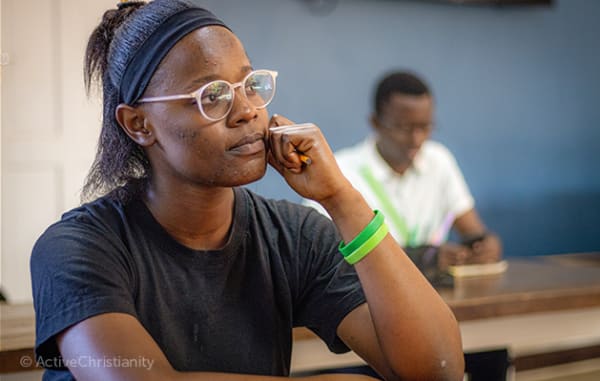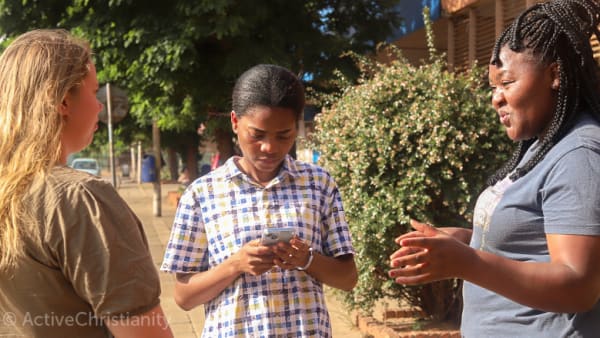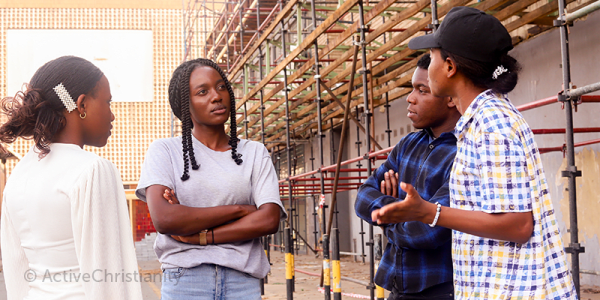I sat in class, feeling a bit sleepy and only half-listening as the teacher talked about world affairs. But my attention was drawn sharply back when I heard her ask: "Why do you think there are still so many wars and conflicts around the world?”
There was a silence as students thought about this question and the many possible answers.
“Greed,” one student suggested. “Poverty,” said another. The teacher shook her head. “Those are also correct, but there is another point I want to talk about.” Finally one boy raised his hand, “Because most people believe they are always right, and when others don’t agree with them, they won’t give up.” “Or,” another girl said, “one side is right and the other can’t accept it.” The teacher nodded, “And why is it so difficult to agree with the other?”
What causes difficulties?
As I thought about the endless conflicts and wars we hear about daily, I wondered, “What about all the disagreements and conflicts that start out small in a person’s daily life?” I remembered an unpleasant discussion I had had with someone earlier, and how bad I felt afterwards. “What caused that?” I asked myself. “Why is it so difficult for me to like some people and be friendly with them, or to accept that I’m not right?”
Then I remembered a verse in the Bible, from 1 Corinthians 13:4 (ESV): “Love … is not arrogant.” I realised that I hadn’t found “peace and unity” with this person because of my ego, my pride. I believed that I was right and defended myself, instead of asking God to help me and using His wisdom instead of my own. I trusted my own ego instead of God, which was a huge mistake and had led to the disagreement.
Knowledge makes people arrogant
The only power that can build up and improve things is love. God cannot help me if I am so proud and arrogant that I cannot hear His voice when He wants to tell me something. Then it’s impossible for me to love God and other people.
In 1 Corinthians 8:1-2 (GW) it says: “Knowledge makes people arrogant, but love builds them up. Those who think they know something still have a lot to learn.” I must ask myself, “What is it that I really know? Have I asked God what He thinks? Do I trust that He knows best?” If I really believe that all wisdom comes from above, then I will be humble in my own eyes and admit that I have a sinful human nature in which there is nothing good. (Romans 7:18.)
God’s wisdom
My sinful human nature is the reason that I cannot see myself and other people correctly, as God sees us. But if I truly understand and admit this, I can ask God for His wisdom. And use His wisdom to make peace in all situations, no matter which side is right or wrong, instead of just letting the conflict become worse and worse.
“… as for knowledge, it will come to an end.” 1 Corinthians 13:8 (NRS). Knowledge might impress people and they will maybe honour you for it, but it is just for a time, it will come to an end. And it does not bring peace or help me to bless and love others. It can be useful when we use it in practical situations, but it doesn’t show me how to have a pure and burning love for God and all people just as Jesus did.
If I humble myself and accept God’s wisdom in my situations, my love will grow and grow! Then I will be a true peacemaker wherever I go.




